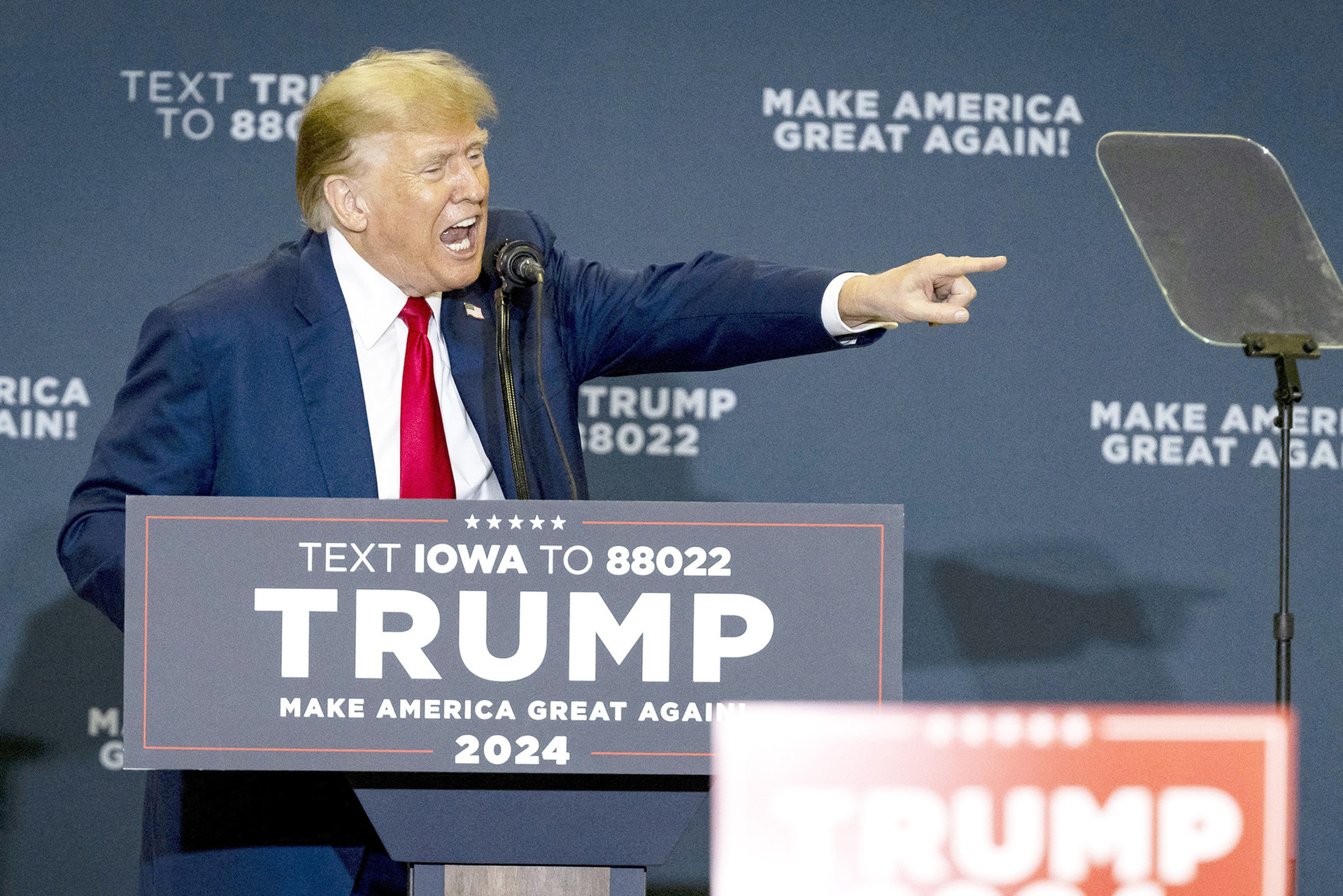There are many important questions that the US courts will have to answer as Donald Trump seeks to return to the White House.

Former US President Donald Trump at a rally in Iowa on January 5
Did Trump incite the January 6, 2021, riot on Capitol Hill and seek to overturn the election results? Should he be barred from running again? Is the former president immune from prosecution? These are just a few of the key questions that US courts will have to answer as the 77-year-old real estate mogul seeks to return to the White House.
Last month, the Colorado Supreme Court ruled under the 14th Amendment to the US Constitution that Mr. Trump was ineligible to run in the state's primary because of his involvement in the riot at the US Capitol building.
Just two days after Mr. Trump appealed, the US Supreme Court, which has six of its nine conservatives and three Trump appointees, decided to take up the case and scheduled arguments for February 8. They may also issue a ruling early because Colorado and more than a dozen other states will hold primaries on March 5.
Not only Colorado, courts in several other states have also considered Mr. Trump's qualifications.
According to CNN, Mr. Trump is still on the primary ballot because the lower court's ruling has been paused pending a Supreme Court ruling. If the judges conclude that Mr. Trump is not qualified to hold office, votes cast for him will not be counted.
A series of criminal and civil cases involving former President Trump have forced the US judiciary into the unenviable position of being the arbitrator in a heated election year.
Mr Trump is facing a series of serious charges for trying to overturn the results of the 2020 presidential election and his role in the Capitol Hill riot.
He is also accused of hiding top secret documents after leaving the White House and faces charges in New York state for paying hush money to a porn star.
And those are just the criminal cases, there are also other lawsuits related to his family's business in New York.
One of the headaches the judges will have to deal with is whether Mr Trump is immune from prosecution as a former US president, as he claims.
"No former president has ever been prosecuted," AFP quoted Derek Muller, a law professor at the University of Notre Dame. In addition, judges must also determine whether the riot on Capitol Hill was an insurrection and whether Mr. Trump participated in that event.
Previously, the courts were not unfamiliar with these matters, but the litigants were usually small, independent or third-party candidates.
In a speech on January 5 marking the third anniversary of the Capitol Hill riots, President Joe Biden harshly attacked Mr. Trump, who is also his expected opponent in the election later this year.
Mr Biden used his strongest words yet to attack his predecessor for acting "dirty" by inciting riots to overturn the election results and trying to return to the White House to "take revenge" on those who opposed him.
In response to being called a threat to American democracy, Mr Trump painted a dark picture of a "failed" state under Mr Biden as "terrorists" and immigrants from "mental asylums" poured across the southern border.
"Nothing is getting better under crooked Joe Biden. It's chaos," Reuters news agency quoted Mr. Trump in Iowa. "All I want is fairness," former US President Donald Trump said at a January 5 rally in the state.
TB (summary)